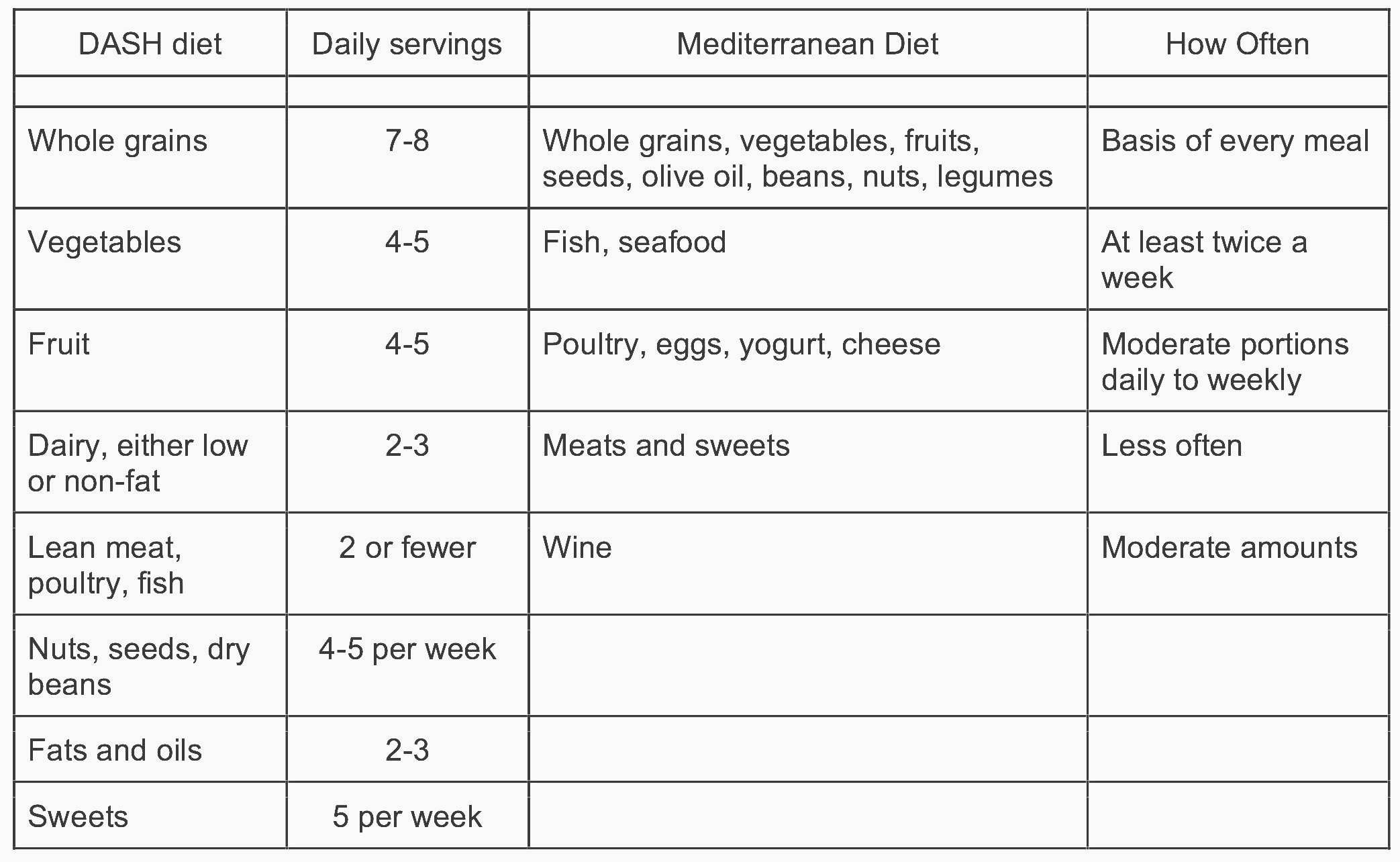The Mediterranean, DASH and Plant Based Diets Compared
Listed below are three diets believed to be of benefit to patients at risk for heart disease. Proving that one diet is superior to another is very difficult to do and equally hard is determining which components of any one diet is most important. While they have their differences, all three are based on whole grains, fruit and vegetables. Note that rye, semolina and stone-ground wheat are not whole wheat. Refined grains such as white rice, white bread, and sweetened cereals are processed in a way that removes fiber and other nutrients but prolongs shelf life and improves texture. Fruit should be whole fruit and not fruit juice. The web is full of references and recipes for all three of these diets.
The DASH diet
DASH stands for Dietary Approaches to Stop Hypertension. Developed to lower blood pressure, there is the usual DASH diet, which allows for 2300 mg of sodium, and the DASH Low Salt Diet, which restricts sodium to 1500 mg. Protein is derived from low fat dairy products, fish, poultry, and nuts. Red meat, sweets, and sugary drinks are limited.
The Mediterranean Diet
Based on the habits of residents who live along the shores of the Mediterranean and have lower rates of heart disease, the diet employs a food pyramid. Several versions of the pyramid exist, but at the base are fruits, vegetables, nuts, whole grains, and vegetables. Olive oil is an important source of monounsaturated fat. At least two servings a week are from fish. Poultry and dairy products are moderately restricted, while meats and sweets are further restricted. The Mediterranean diet is more restrictive of meat than the DASH diet. The DASH diet is more restrictive of sweets and wine. The DASH and Mediterranean diets are compared below.
Plant Based Diet
Of the three diet types, the plant based diets differ the most from the standard American diet. At its most strict, there is the whole-foods plant-based diet, a vegan diet that prohibits meat, poultry, fish, and dairy products. A key difference from the other diets above is the focus on whole food products, meaning olives rather than olive oil and grapes rather than wine. Among its major advocates is Dr. Caldwell Esselstyn of the Cleveland Clinic. Dr. Dean Ornish has developed another program that includes a vegan diet.
Conclusion
While there are strong proponents of all three of the above diet types, none is clearly established as superior. Most patients will find themselves occasionally varying from the recommendations. Perhaps the greatest lesson is on what all of these diets have in common and how much they differ from standard American fare.


